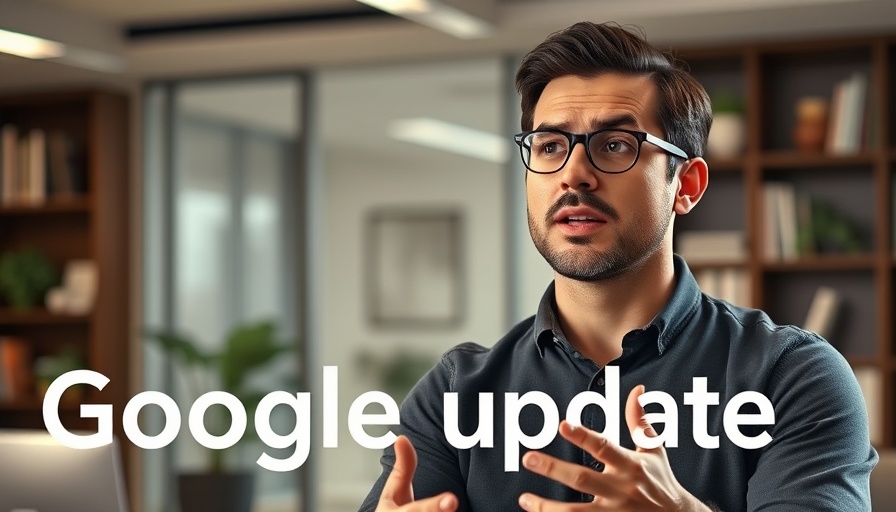
The Shifting Landscape of Google's AI-Powered SEO
In recent years, Google has increasingly relied on AI enhancements for search functionalities, leading to notable ranking volatility. The latest updates suggest that while traditional organic search rankings exhibit a measured stability, AI-driven rankings are in a constant state of flux. As small business owners and marketers navigate these changes, understanding the intricacies of these new dynamics is crucial for maintaining their competitive edge.
Understanding Google’s AI Overview Rankings
Data reveals that roughly 70% of AI Overview rankings fluctuate significantly within just a few months, unlike their organic counterparts, which tend to maintain greater consistency (a volatility score of 0.49 to 0.55). This discrepancy indicates that businesses need to modify their strategies to account for AI's unpredictable nature. Recognizing these shifts allows marketers to be proactive rather than reactive in their digital marketing efforts.
Implications for Local Listings and User Engagement
Rumors have circulated about local updates potentially removing organic listings when they appear in local packs. This brings attention to the pressing need for small businesses to optimize their Google Business Profiles. Effective management of these profiles—something previously rare—might become essential to engender lasting customer engagement and visibility, especially as Google begins sending emails explaining why verification processes fail.
The Power of In-Content Learning and AI Overviews
Jeff Dean’s insights on combining Google Search with large language model (LLM) in-context learning signal a major transformation. This advancement not only facilitates a more seamless user experience but also emphasizes the importance of producing quality, relevant content that aligns with evolving user intents. Businesses are called to create innovative content strategies that are adaptable as AI tools evolve.
Exploring Recent Changes in Google Ads
Google Ads continues to evolve, with new features allowing AI-generated images to showcase people and faces. This major change calls for agencies and small businesses to rethink their advertising strategies. Enhanced visuals, paired with tools that create AI-enhanced images, aim to capture more potential customers, offering an enticing array of creative possibilities. Remarkably, Google is now set to default its ads away from parked domains, focusing instead on active, engaging content.
Tips for Managing Google Ranking Volatility
To withstand and adapt to ongoing changes, here are several strategies small business owners and marketers should consider:
- Focus on Quality Content: High-quality, user-centered content that resonates with audience desires leads to better performance.
- Embrace E-E-A-T Principles: Expertise, Experience, Authoritativeness, and Trustworthiness remain central to a successful content strategy.
- Leverage SEO Tracking Tools: Regular monitoring of your site's performance ensures you stay ahead of potential issues.
Engaging with AI: Future Predictions and Opportunities
The direction in which Google is heading is clear—AI integration in search technologies is not going away. As these systems become more sophisticated, marketers and small business owners have the opportunity to capitalize on emerging trends. Tools like Google Lens, which shows increasing AI overviews, exemplify this shift, allowing businesses to connect better with potential customers through enhanced visual interfaces.
With Google's continuous updates and a growing reliance on AI, digital marketing strategies must evolve to meet new challenges. Staying informed and adaptable enables small businesses to not only survive but thrive in an ever-evolving digital marketplace.
For those ready to embrace change and enhance their digital marketing strategies, now is the moment to act. Staying up to date with SEO trends and leveraging AI can provide opportunities for growth and innovation.
 Add Row
Add Row  Add
Add 




Write A Comment